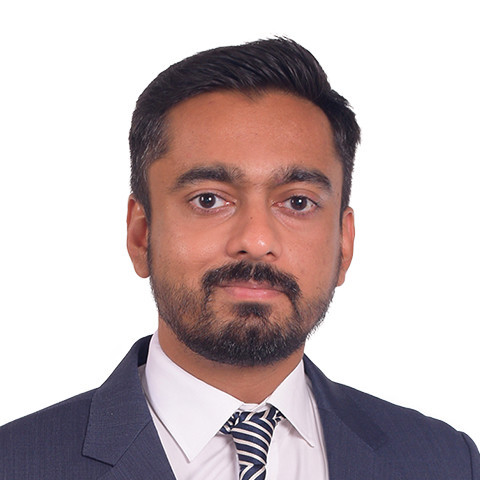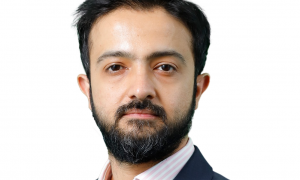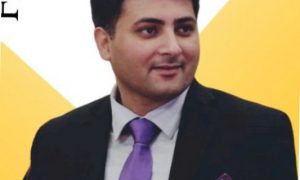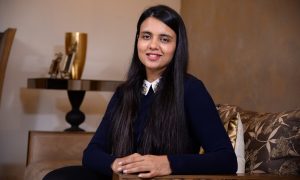This Interview has been published by Pragya Chandni and and The SuperLawyer Team

You are an international disputes lawyer at Freshfields Bruckhaus Deringer and you also lead Freshfields’ India disputes practice. Can you share with us the journey that led you to where you are today?
I’ve had a somewhat unconventional path. Fresh out of law school in Bangalore in 2009, I took a leap of faith and moved to Delhi to litigate. As a first-generation lawyer who grew up in Mangalore and Bangalore, I wasn’t sure if I’d find my feet, but generous colleagues and mentors made that possible.
My first job was with Mr. Vikas Mehta, an accomplished Advocate on Record in the Supreme Court from whom I learned a great deal about the art and science of dispute resolution. In 2011, I joined Mr. K.K. Venugopal, who, apart from being one of India’s leading lawyers, is a fantastic mentor. His chamber has produced prominent senior advocates and judges, most recently Mr. KV Viswanathan, who was appointed to the Supreme Court last year. I was also fortunate to have the support of Gopal Sankaranarayanan, now a Senior Advocate, who helped me navigate what to me was a new and sometimes inscrutable world.
A few years into my litigation career, it became clear to me that I would set up my own counsel practice. But before doing that, I wanted to pursue an LLM to deepen my study of public and constitutional law–areas of particular focus for me during my time with Mr. Venugopal. I attended Harvard Law School in 2016, an enriching year in which, among other things, I explored core constitutional issues such as equality and free speech. Upon returning, I began working toward establishing an independent practice, while continuing to assist Mr. Venugopal, who by then was the Attorney General for India.
My career shifted quite abruptly at this point. My wife, a journalist, was on a career path that looked increasingly like it would be outside India, which led me to pursue opportunities overseas. International arbitration was a natural fit and I accepted an offer to join the Singapore disputes team at Freshfields, where I have been since November 2018. My focus is international disputes, both commercial and investor-State, across a range of sectors and regions. India is an important part of our practice, and in November 2022, I began leading Freshfields’ India disputes practice.
Your experience with Mr. KK Venugopal means that you have handled a large number of cases before the Supreme Court of India, including landmark constitutional cases. Could you elaborate on one of these cases and share the impact it had on shaping your legal career?
I was fortunate to have worked with Mr. Venugopal on many occasions. They include the case challenging the National Judicial Appointments Commission, the 2G telecom spectrum case, the Aadhar case, and the challenge to criminal defamation in India. The opportunity to work on these legally complex and often politically-charged cases was incredible and gave me a front-row-view to how the greatest Indian legal minds approached these subjects.
Working in Mr. Venugopal’s chamber was also rewarding because his juniors have always been an integral part of his team. That means your voice is always heard, your opinions are considered and your work is always credited.
You transitioned from the Office of Mr. KK Venugopal. How has your previous experience influenced your approach to handling international cases?
My experiences in India, especially with Mr. Venugopal, have been instrumental in shaping my approach to complex, high-stakes international cases. But it wasn’t just the grand battles. Tackling hundreds of commercial cases at the Supreme Court solidified my foundation in core contract and commercial issues. Those cases honed my ability to think strategically like a lawyer, identify key issues, and grasp the commercial context. While specific laws may differ, the core approach to applying legal principles remains strikingly similar. A robust foundation from my India experience allowed me to seamlessly transition to the international disputes arena.
You are on the panel of arbitrators at the Singapore International Arbitration Centre and the Thailand Arbitration Center. How do these panel memberships contribute to your professional growth?
Serving on these panels gives you the opportunity to be appointed as an arbitrator (of course, appointments are not automatic. These institutions have a robust selection process for each case). Sitting as an arbitrator shifts and broadens your perspective and, ultimately, also makes you a better advocate. You gain a new understanding of what counsel can and should do to better serve their clients and the arbitral process.
Being recognized as a Future Leader and National Leader in global and Southeast Asia arbitration publications is a significant achievement. How do you think these recognitions have impacted your career, and what advice would you give to young lawyers aspiring for similar recognition?
Thank you. Such recognition is valuable because it showcases your experience and expertise to a broad swath of the arbitration world and can be a stepping stone to more opportunities. That said, I wouldn’t advise young lawyers to chase it as an endgame. Instead, I’d advise them to focus the early stages of their careers on honing their craft. Good work does eventually get noticed.
You are the current Co-chair of Young ICCA. Tell us a little more about how it happened and your work with Young ICCA?
I’m deeply interested in contributing to the development of arbitration and to ensuring that young practitioners have the support they need to succeed. Young ICCA is a fantastic organization with programs aimed at doing just that. When a co-chair position opened up, I put my hat in the ring.
With over 10,000 members, Young ICCA is one of the largest young arbitration bodies in the world. Our core programs are mentorship (we run mentorship cycles, assigning mentors to small groups of young arbitration practitioners), scholarships (we have tie-ups with leading universities to offer fee waivers for Young ICCA scholars), events (all our events are free, and we try hard to ensure they are focused on skills training), and publications (we run a popular essay competition and the winner gets a chance to speak at the ICCA congress). The work I do with Young ICCA is truly rewarding.
You’ve co-authored several articles. How important is thought leadership in your field, and how do you stay abreast of the latest developments to contribute meaningfully to the discourse?
The law is complex and evolves every day. Thinking beyond your immediate case and grappling with the wider legal landscape is crucial to being a good disputes lawyer. Writing an academic piece allows you to dive deep and dissect tough issues from different angles. It widens your aperture and might force you to think ahead about how a particular area of law is likely to develop.
As a lawyer in private practice, the trick of course lies in carving out the time for such pursuits. I try to make time every day – okay, almost every day – to keep track of the latest developments in my areas of work and interest.
Considering your extensive journey and achievements, what advice would you offer to law graduates who are just starting their careers in the legal field, particularly those aspiring to specialize in international arbitration and dispute resolution?
When I speak to young lawyers, I always tell them to remember that their legal careers are long. In the early years, what’s vital is building the foundational skills of research and writing, and acquiring a rigorous understanding of first principles. It sounds obvious and intuitive, but all too often, young lawyers feel pressured into picking or committing to a specialized field at the cost of the basics.
For lawyers aiming to practice internationally, there are usually two ways to do it. The first is to apply for a training contract with an international law firm, train there, and qualify into an international disputes practice. The second is to work in India for a few years, do a postgraduate degree and then look for opportunities with an international law firm. The second is the harder of the two paths.
Get in touch with Rohit Bhat-























